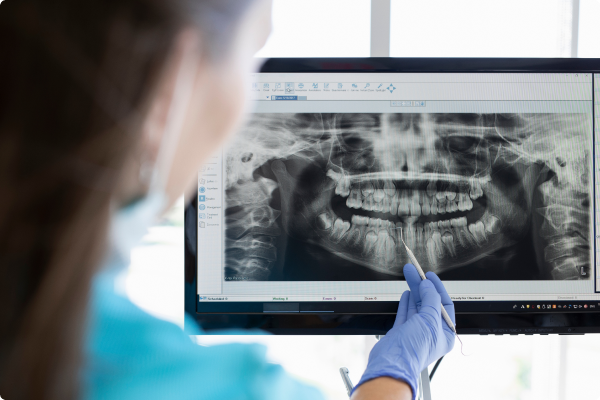What Does a Dental Nurse do?
Learn about the role of a dental nurse. Find out what they do, the skills they need, and how they support dentists and patients.

Learn about the role of a dental nurse. Find out what they do, the skills they need, and how they support dentists and patients.

Dental nurses play an important role in the success of every dental practice. The responsibilities discussed in this article are certainly not an exhaustive list as the role of the nurse varies from practice to practice, but all nurses will be familiar with the tasks we present here.

The dental nurse isn’t just there to help the dentist during each appointment – it’s about anticipating exactly what the dentist will need next. That might be assisting with aspiration, mixing materials or preparing a set of instruments for a procedure. But one of their most important roles is being there for the patient – helping them to relax, answering questions, and explaining procedures in more depth. Learning how to build rapport with each patient is something that only really comes with experience.
A critical part of the role is sterilising the dental environment, instruments and equipment in order to minimise the possibility of cross-infection. The includes:
Before any appointments get underway, the dental nurse will normally check the patient notes and highlight important features to the dentist, for example allergies. Some dentists will rely on the dental nurse to run through each patient’s medical history and ensure nothing has changed.
All dental nurses learn how to take down and amend dental charts showing the status of each surface of each tooth in the patient’s mouth. Increasingly this data is stored digitally, but manual charting is still an essential skill. A dentist will expect a newly qualified dental nurse to be ready to take charts immediately, and they won’t slow down once they start the examination!

Dental nurses are often required to step in to help out on reception, so an understanding of patient confidentiality is important. Some practice managers will seek to get their nurses involved in other tasks such as contacting patients about their appointments, writing letters, or other administrative duties. Flexibility and a willingness to try new tasks is key.
Depending on experience and the relationship between the dentist and the nurse, some dental nurses take additional training in order to take x-rays, take clinical photographs, take impressions, educate patients about oral health or even apply fluoride varnish to teeth.
In the UK you’ll need to study a course in dental nursing, either on a part time or full time basis, that is approved by the General Dental Council (GDC). Course requirements vary but typically you’ll need 2 GCSEs (C grade or above) in English plus Math or a science subject. It’s also possible to take a level 3 apprenticeship in dental nursing.
Once qualified, you’ll receive a GDC number that will enable you to work in NHS or private dental practices, domiciliary practices and even the Ministry of Defense. Experience as a dental nurse can lead to studying as a dental hygienist or dental therapist, and some nurses have gone on to train as dentists themselves.
The most important skills you’ll need are a willingness to work as part of a team and a desire to learn. You’ll need to be friendly and tactful, with an interest in people. The role can be stressful and challenging, so you’ll also need to be resilient and good at working under pressure. Equally being a nurse can be very rewarding, and it’s great to be part of a team helping to maintain and improve people’s health.
For more information on becoming a dental nurse, visit the British Association of Dental Nurses and the National Examining Board for Dental Nurses.
If you’re reading this as an existing or aspiring dental nurse, feel free to browse our dental uniform range, our tops and trousers combine comfort, quality and fashion whilst sacrificing nothing on functionality, and are suitable for dentists and reception staff as well as nurses.